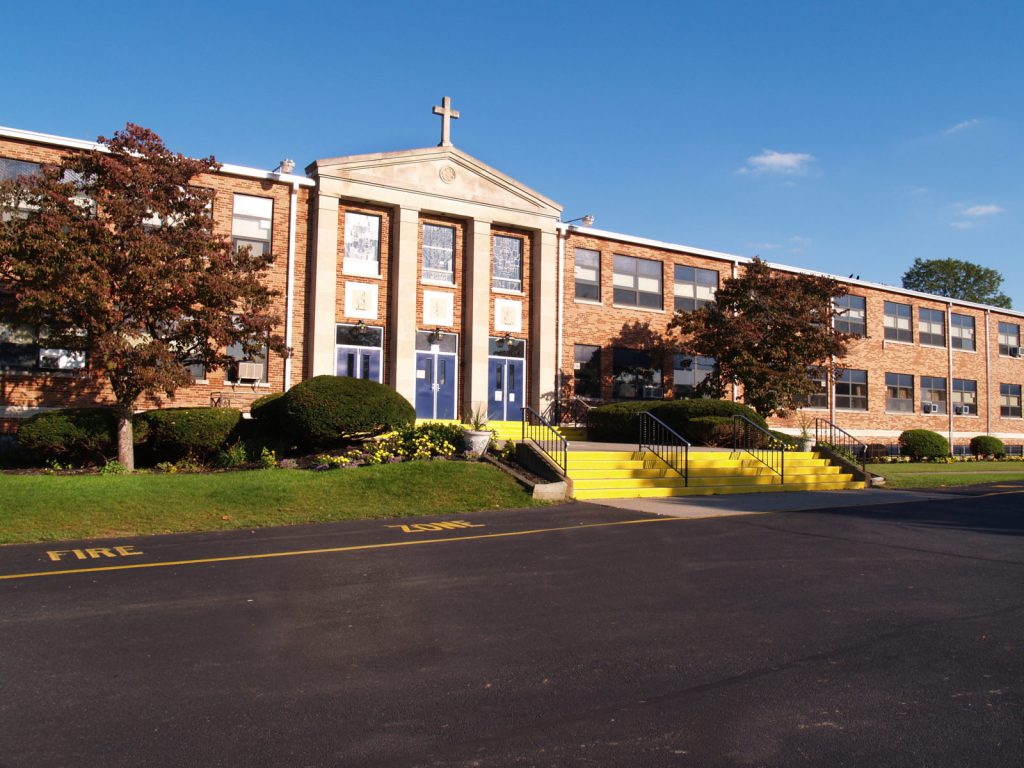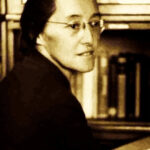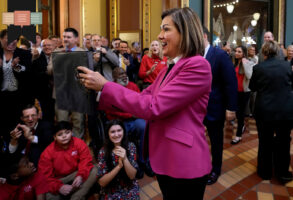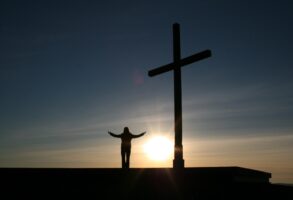
Published October 22, 2015
In a recent essay for First Things, we encouraged the Synod of Bishops to promote Catholic education as both an evangelistic opportunity and a cultural antidote to ideological colonization.
Here we encourage all Catholics to support the education of the next generation of Catholics, as a communal responsibility, particularly in light of the challenges of ideological colonization.
Faithful, well-formed Catholics are essential to the Church’s evangelizing mission. And Catholic education offers an unparalleled opportunity to evangelize (and catechize) the next generation — a generation increasingly disconnected from God and religious practice, and vulnerable to harmful ideologies.
More than once, Pope Francis has highlighted the dangers of “ideological colonization” and pointed out that ideological colonization threatens Christian families everywhere. “Ideological colonization of the family” describes the efforts of ideologically, politically and financially motivated individuals and organizations to change the culture and advance the goals of the sexual revolution.
These ideologues use the media, health care, entertainment, government and — insidiously — state-controlled education to change beliefs and practices about the human person, sexuality, marriage and the family. Promoting a false anthropology, moral relativism and sexual confusion, they aim to weaken, deconstruct and even destroy the family.
So what does this have to do with Catholic children and Catholic education?
Everything. The vast majority of Catholic children in America are educated primarily in public schools, where ideological colonization is already a reality. Although battles over the character and curriculum of America’s public schools have been fought for decades, the terrain has shifted radically.
The forces of ideological colonization are now firmly in control, intent on shaping students’ attitudes and beliefs to conform to a secular, “progressive” ideology starkly at odds with Christian anthropology and Catholic moral principles.
As a result, many public schools today demean or marginalize Christianity while promoting practical atheism, youth “sexual rights” and same-sex marriage in opposition to parents’ values. Gender ideology increasingly permeates high school, middle school and even elementary school curricula, and is reinforced by anti-bullying codes that silence those who dissent from the LGBT agenda.
School clinics dispense contraceptives and refer for abortions while conveying the message that chastity is impossible for teenagers. Even bathroom privileges communicate the preferred ideological messages about sex and gender. Transgender students now have rights to use the restroom of their chosen gender rather than their biological sex, even over the privacy objections of other students.
This is the educational backdrop for the vast majority of Catholic children in America, because they are educated primarily in public schools. A June 2014 report by the Center for Applied Research in the Apostolate (CARA) reveals a troubling reality: Only 8 to 13 percent of Catholic children attend Catholic schools (percentage varies by grade level). Even after accounting for Catholic homeschooled children, the total fraction of Catholic children receiving a Catholic education, in school or at home, is still abysmally low. And the future looks bleak, particularly for minorities.
More than half of all Catholic children in every age category (pre-school, elementary school age and high school) are Hispanic, but only 15 percent of Hispanic Catholic children attend Catholic schools.These young Catholics — the future of the Church — are disproportionately likely to be educated in public schools. That’s a problem.
Even the best public school, one that limits the incursion of gender ideology, conveys a vision of the person that blends gender ideology with humanist virtues, all in a context devoid of faith. This formation is incompatible with Christian anthropology, and promotes the following ideas: that the family, like gender, is a personal construct, to be defined and redefined at will; that men and women are fungible rather than complementary; that marriage is defined by and subject to the state; that sexual activity is primarily about pleasure, with no inherent meaning or morality; and that Judeo-Christian values arbitrarily limit human freedom and must be excluded from the public square.
And “good” public schools — staffed by reasonable people who respect parents’ rights and traditional morality, and are responsive to local communities — will soon go the way of the dinosaur. They will be forced to yield to Common Core, the reality of “marriage equality,” pro-LGBT campaigns and school-based clinics dispensing emergency contraception and IUDs.
Even “good” public schools, however, suffer from a fatal flaw, from the Catholic perspective: They train students to live, think and analyze as if God did not exist. God is erased from history, science and the world of ideas — and from any overt place in students’ daily lives. It’s unsurprising, really, that Catholic children educated in a secular environment are more likely than their Catholic school peers to leave the faith (CARA,2014). They have been trained, day in and day out, to push God to the margins of their lives.
Weekly religious education is a woefully inadequate solution, in spite of the best efforts of dedicated parish staff and countless volunteers. The current model of religious education is a holdover from a time when public education took place in a context of Judeo-Christian values when Catholic culture was strong, situations that no longer exist. It is unrealistic to expect one hour of religious education to blunt the impact of forty hours of ideologically-driven public education.
It should trouble us, as Catholics, that public schools control the social, intellectual and, at times, moral formation of most Catholic children. Put differently, if we acknowledge that the public schools of today — and the future — are heavily invested in promoting a warped view of sexuality and a deformed view of the person and human freedom, why isn’t securing an affordable Catholic education a singular priority for every diocese, parish and family?
Perhaps some parents and pastors are stuck in yesteryear: the days when public schools functioned in a largely Christian culture. Make no mistake, the compromises of the past are untenable today. Gender ideology is incompatible with Christian anthropology.
While Christianity speaks of truth, discoverable through reason and Revelation, gender ideology proclaims that each person creates his or her own “truth,” especially about human sexuality. Where Christianity speaks of the complementarity of men and women, gender ideology proclaims that gender is fluid, malleable, a social construct designed to oppress women. Where Christianity speaks of conscience, well formed in light of the Church’s teaching, gender theory insists on the infallibility of each individual’s self-perception, especially in matters of sex.
The advocates of gender ideology will not be content with isolated victories; their goal is to re-shape, in comprehensive fashion, the next generation’s attitudes and beliefs about human sexuality, and they are using the public schools to accomplish that purpose.
The solution? Faith-based education, especially Catholic schools that have a strong Catholic identity which permeates the school’s curriculum, atmosphere and activities. Indeed, the necessity for Catholic education springs from the family’s mission to educate children and prepare them for life and for love, a mission that is undermined by ideological colonization. Children need schools that will support rather than deconstruct an integrated view of the person and the family. And the Church needs strong families led by adults who are well formed and dedicated to the mission.
Catholic education — as the Church intends it, if not always in practice — is specifically and intentionally grounded in Christian anthropology. It offers a consistent framework for a child to understand him or herself, the culture and the world at large in the context of his or her identity as a child of God. It forms the heart of a child in an environment that affirms the dignity of the person, respect for the body, the gift of human sexuality, concern for the most vulnerable and our call to eternal life. These ideas are indispensable to Christian discipleship and the Catholic vision of family.
Well aware of the importance of Catholic education, the Synod fathers encouraged families to “seek out” Catholic education “as a uniquely compelling way to enhance and deepen the religious education which begins in the family.” However, the gravity of the situation — the advance of ideological colonization — requires more of all of us beyond simply encouraging individual families to seek out existing Catholic schools.
Each diocese, with a new sense of imperative, must look critically at its own support for Catholic schools, examining issues of affordability, accessibility and Catholic identity. Catholic families cannot “seek out” Catholic education if schools are not open, affordable and truly Catholic.
Although there is no one-size-fits-all solution, some dioceses have succeeded in making Catholic education affordable. Other dioceses may choose to embrace unconventional options: parent-run schools that fill the void created when Catholic schools close, homeschooling or hybrid models of education and innovative models like the Cristo Rey academies.
Catholic philanthropists should consider shifting their priorities too; supporting Catholic elementary schools and high schools will deliver more impact than donating new buildings to generously endowed, marginally Catholic universities. And parish priests must help parents realize why their children need a Catholic education, and why it matters more to a child’s future than the public school’s language immersion program or its highly-touted STEM program.
But responsibility for Catholic education cannot and should not be placed only on the shoulders of bishops and priests. None of the solutions suggested above will work unless, and until, all Catholics understand that Catholic education is a communal responsibility and embrace it as the cornerstone of evangelization.
All Catholics need to support Catholic education, in all its forms, recognizing that it provides both an evangelistic opportunity and a cultural antidote to the problems of ideological colonization.
This is a critical time for families. It is also a blessed time because where challenges abound, God’s grace will flow generously. We can depend on God’s grace, but He is waiting on our commitment.
Theresa Farnan, PhD, is an Adjunct Professor of Philosophy at Franciscan University of Steubenville.
Mary Rice Hasson, JD, is a Fellow at the Ethics and Public Policy Center, where she directs the Catholic Women’s Forum.












